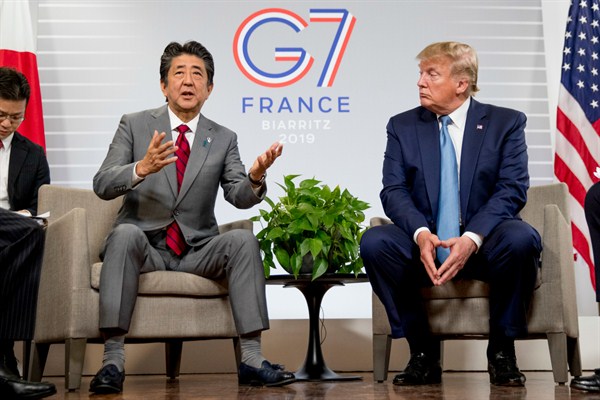Amid the gyrations of his trade war with China, President Donald Trump was eager to trumpet his administration’s progress in negotiating a trade agreement with Japan during the recent G-7 summit in France. Unfortunately for him, Prime Minister Shinzo Abe and Trump’s own chief negotiator, U.S. Trade Representative Robert Lighthizer, sounded a far more cautious note, with Abe even pushing back gently on some of Trump’s claims.
While Trump predicted the agreement would be signed in September during the meeting of the United Nations General Assembly in New York, it is still not clear when, or even if, the outstanding issues between Washington and Tokyo will be resolved. Trump still refuses to acknowledge that all parties can gain from trade agreements, rather than just the U.S., and insists that he must look like the winner. As Richard Haas noted recently, Trump doesn’t negotiate; he makes demands.
Trump’s penchant for demanding terms and spinning the results of negotiations to suit himself was evident at his press briefing with Abe at the G-7 in Biarritz. Unlike other rambling Trump press conferences, the difference this time was that Abe, Lighthizer and Japan’s economy minister, Toshimitsu Motegi, were also there, and they could correct the record in real time. As notable as what was said—and what Abe mildly rebuffed—were the words Trump never uttered until questioned by a reporter: automobile tariffs.

